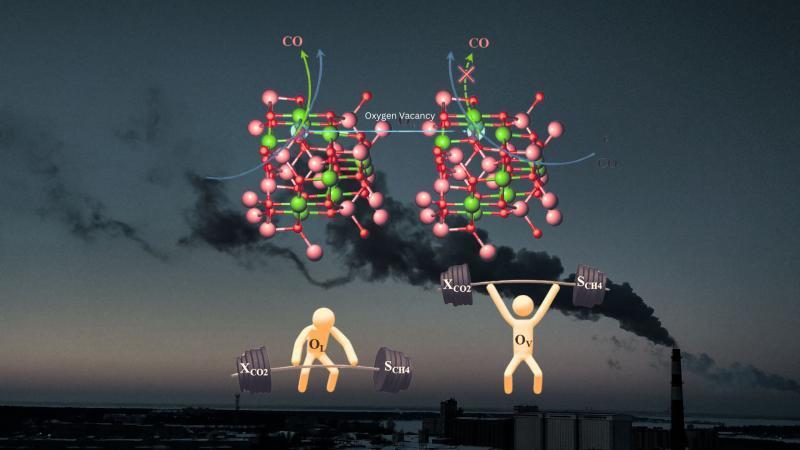
Innovative Catalyst for CO2 to Methane Conversion
The world is facing an unprecedented environmental crisis, with climate change being one of the most pressing concerns. The excessive emission of greenhouse gases, particularly carbon dioxide (CO2), is a major contributor to this issue. In recent years, scientists have been exploring methods to convert CO2 into valuable chemicals and fuels, such as methane, to reduce the amount of CO2 in the atmosphere. In a breakthrough discovery, researchers from BITS Pilani and Sorbonne University have created a novel catalyst that can efficiently convert CO2 into methane, marking a significant step towards climate change mitigation.
Background: CO2 Conversion
Carbon dioxide is a potent greenhouse gas that is responsible for approximately 65% of the warming experienced on Earth. The primary source of CO2 emissions is the burning of fossil fuels, which releases large amounts of CO2 into the atmosphere. Converting CO2 into useful chemicals and fuels can help reduce the amount of CO2 in the atmosphere, thereby slowing down global warming.
Methane, a potent greenhouse gas, is a promising product of CO2 conversion. Methane is a cleaner-burning fuel than traditional fossil fuels and can be used as a substitute in various applications, such as power generation, industrial processes, and transportation. The conversion of CO2 into methane also offers a means to utilize excess CO2, which is often released during industrial processes, such as cement production and natural gas processing.
Introducing the Novel Catalyst: Nickel and Cobalt Oxide
Researchers from BITS Pilani and Sorbonne University have developed a novel catalyst consisting of nickel and cobalt oxide to efficiently convert CO2 into methane. The catalyst, which is a combination of nickel oxide (NiO) and cobalt oxide (CoO), is designed to enhance the conversion rate of CO2 into methane.
The researchers achieved this by inducing oxygen vacancies in the catalyst, which is a crucial step in the conversion process. By creating oxygen vacancies, the catalyst can facilitate the reaction between CO2 and hydrogen (H2) to produce methane (CH4). The presence of nickel and cobalt oxides further enhances the catalyst’s efficiency, allowing for a higher conversion rate.
Experimental Results
The researchers conducted a series of experiments to test the efficacy of their novel catalyst. In their experiments, they exposed the catalyst to a mixture of CO2 and H2 at high temperatures and pressures. The results were impressive, with a conversion rate of 58% achieved for the production of methane.
To put this into perspective, the average conversion rate for CO2 conversion into methane is around 10-20%. The novel catalyst developed by the researchers from BITS Pilani and Sorbonne University has achieved a remarkable 58% conversion rate, which is significantly higher than the average conversion rate.
Implications and Future Directions
The development of this novel catalyst has significant implications for the production of methane from CO2. With its high conversion rate, this catalyst can be used to produce large quantities of methane, which can be used as a cleaner-burning fuel. This has the potential to reduce our reliance on fossil fuels and decrease greenhouse gas emissions.
Furthermore, this breakthrough discovery can also be applied to other industrial processes that produce excess CO2, such as cement production and natural gas processing. By converting this excess CO2 into methane, these industries can reduce their carbon footprint and contribute to a more sustainable future.
Conclusion
The development of a novel catalyst for CO2 to methane conversion is a significant breakthrough in the field of climate change mitigation. With its high conversion rate, this catalyst has the potential to make a significant impact on the production of methane from CO2. As researchers continue to refine and improve this technology, we can look forward to a cleaner, more sustainable future.
News Source:
https://researchmatters.in/news/new-nickel-cobalt-catalyst-convert-carbon-dioxide-cleaner-fuel






